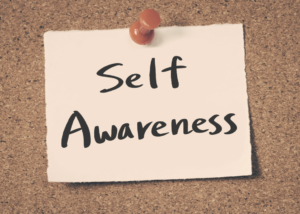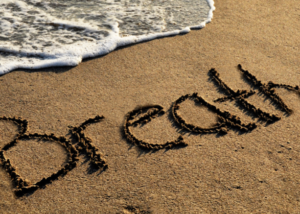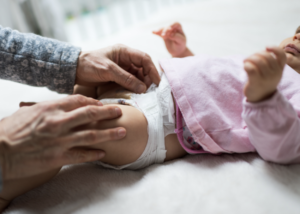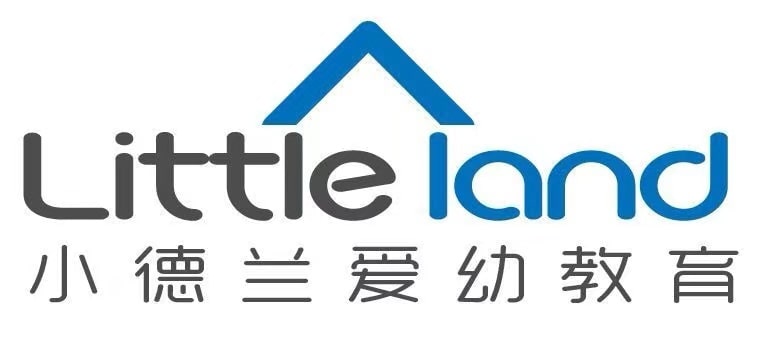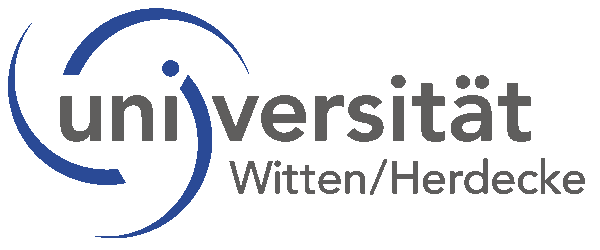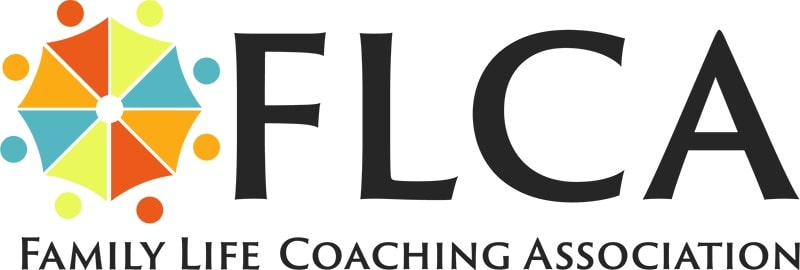Project Description
We don’t have to be perfect
Our goal is to become self-aware.

A personal account by Parenting Coach & author, Pia Dögl
Honestly speaking …
When I was raising our baby daughter, who is now nearly a teen, and while is was writing my Book Beginning Well: Empathy from the Very Beginning – inspired by Waldorf education and the Pikler approach – I often thought: “Oh, my goodness, I am making so many mistakes and what I’m doing with my own child is so far from what I am trying to teach others.”
I realized more and more that education is not about being perfect. It is about courage and commitment to growing lifelong self-awareness. It’s about myself to not know, to be open-hearted, striving and vulnerable. In my work with parents, caregivers and teachers, I’ve noticed over and over again that many of us work very hard to do everything right.
But if we caregivers carry out other people’s ideas of how we should parent, if we act unconsciously, mechanically, or without an awareness of the impact of our actions on our children or ourselves, we won’t be present or truly connected with our little ones.
With this article, I want to encourage you to focus on growing your self-awareness. In my experience, only by becoming self-aware can we truly recognize and support our child’s unique being.
Why growing Self-awareness is fundamental to caring for our little ones
We as parents, caregivers, or teachers, want to create a nourishing environment for our children’s well-being, so that they can thrive, fully embrace and grow into their true selves and their unique potential.
To support our children in that way, it is fundamental that we participate in a self-development process ourselves and that we become more aware of our own habits, beliefs, intentions, thoughts, needs, etc.
As Rudolf Steiner, educational reformer and founder of the Waldorf school said: Education is Self-education!
What this means, in my experience, is that we adults are on a lifelong journey to get to know ourselves better, to study our own inner landscape – to find and reconnect with our true self, to create a meaningful life for ourselves, our loved ones, and the world.
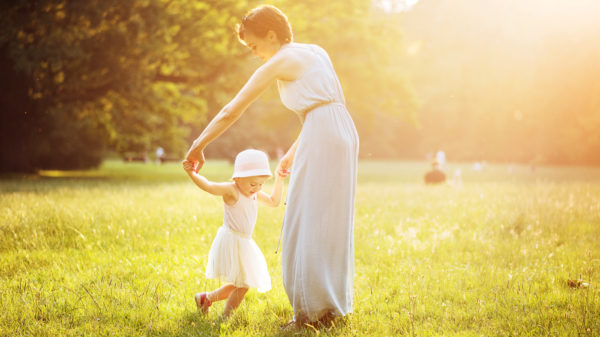
So as a parent or caregiver, not only is it vital to have empathy for the child we care for, but it’s vital that we also have empathy for ourselves. If we become more aware of our own habits, emotions, needs, … we can also become more aware with our children:
- Am I truly present while being with my child or am I drawn away by my mind or other distractions?
- How am I touching my little one. Am I consciously aware of my touch? Am I using gentle or mechanical hands?
- Do I unintentionally dump my inner uncertainty, overwhelm or stress on my child’s soul?
Only through growing our self-awareness can we shed light on what we are doing and what makes us behave differently than we wish to behave.
Self-awareness & self-care go hand in hand
What does Self-care mean?
An example:
When I took my first flight from Vienna to San Francisco with my then 9-month-old daughter, I heard an announcement: “Please, in case of an emergency, place the mask over your own mouth and nose first, and then assist others.” I heard the announcement while looking at my little one and thought: “This is ridiculous, how can I help myself first before I take care of my child?”
YOUR own cup must be filled
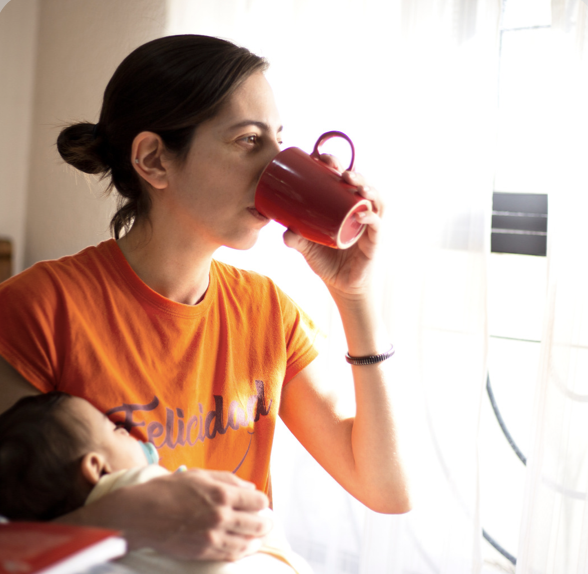
I have to admit that it took me decades to understand and internalize the idea that taking care of myself first simply means that I have to be aware if my own cup is filled: I have to check in with myself and sense when I am low on energy, when my stress level is rising, when my inner stability is melting, or when my sense of self-competence and self-value are saying goodbye to me.
It is just impossible to truly nourish my little when I am in need myself, when I don’t feel well, feel unstable within my body, mind or soul, when I am triggered by old wounds or some unhealed trauma.
No child will feel satisfied by drinking from an empty cup! And we should never underestimate the incredible intuitive potential of our little ones – even as babies – to sense and to participate in our well-being & inner balance.
So, self-care is:
- a necessity & responsibility rather than something selfish
- It means finding out what sustainably nourishes your body, mind, soul & spirit. It means knowing what helps you to:
- release inner tension,
- calm your mind &
- open your heart so you can increase your energy, mindfulness and confident thinking and connect to your higher self.
And please don’t forget:
Self-care is YOUR unique process and path of finding out what works best for your inner balance. And remember, what works best for you can change from day to day, with the seasons, and as you and your child get older.
And never compare yourself with others on that journey. What might work perfectly for your girlfriend or colleague might feel not “right” for you. Don’t let that unsettle you. Rather allow yourself to find YOUR way.
How to start building your self-care practice
Take your own needs as seriously as those of the children you care for
Taking your own needs as seriously as the needs of your little ones may sound like it’s easier said than done. Most of us act unconsciously and out of habit rather than being aware of our own needs.
How to become more self-aware
- allow yourself to slow down whenever possible – observe more and do less
- don’t try to be a perfect parent or caregiver; you can’t be present with your child when you’re thinking about how to be right. It is about finding and BEING yourself!
- stop doing more than one thing at a time. If you do several things at once, e.g., changing a diaper or feeding your baby while being lost in your own thoughts at the same time – you can’t be fully present for any of those activities. It is just not possible for any of us to do two things with our full attention and compassion
- take a moment to appreciate what you have done today rather than focusing on what you didn’t get around to. Self-appreciation helps you to nourish your human need to feel seen and worthy in your authentic self
- pay conscious attention to your breathing
- when we breathe more calmly, our mind starts to calm down as well
- once our mind becomes quieter, we become more present, and with that we become able to more clearly perceive our own needs
Be empathetic with yourself
As mentioned earlier, only when we gain more insight into what we feel, believe, think and need, only when we understand where our own reactions and behaviors are coming from, do we become capable of consciously responding to another with compassion, kindness, and mindfulness.
Especially in moments when you notice that you are losing your patience and acting differently than you would like to be, take a moment to ask yourself what’s going on inside before you respond to your little one.
An example:
Let’s pretend you are on an airplane and your child starts to cry right at the moment when everyone wants to fall asleep. You tried everything, but there is no way to calm him down. The only way to maintain calm in this situation is to find relaxation within yourself, to start giving yourself loving empathy, noticing your own needs, and speaking appreciative words to yourself such as: “Oh, I see what you are going through and how overwhelmed, helpless and alone you feel right now; I also see how beautifully you are holding your little one, so warmly, even though everyone is staring at you as though you were an incapable mom.”
If we manage to give ourselves self-compassion, then we have the best chance of taking care of our own needs and calming ourselves down. Through that, we can be more present for our child.
When we are not connected with ourselves, are triggered by our unconscious feelings and thoughts, we can’t be fully present with our child. But our full undivided attention is what really helps our child to feel secure. They need to feel truly and empathetically held in a difficult moment. It is the same for us adults. If we are worried or anxious, and we can sense an adult being with us with his full loving attention, that is such a pure and healing gift! And this gift can be embraced without a single word!
Self-care – a path to becoming more self-aware
Self-care means much more than eating healthy food and getting enough sleep. Although those are essential too! It is about becoming more self-aware, mindful, and sensitive with oneself, paying more attention to the transitions from, for example, feeling balanced to losing our balance, from being fully present to lost in our own thoughts.
Only if we are aware of what’s going on inside can we pay conscious attention to the needs of our loved ones. And that is why self-care is so fundamental, so that we can become present in order to see more clearly what our little one needs.
And what we know from the science of early brain development is that once children feel seen, they feel safe, and the more safe and seen they feel, the more easily they can relax, learn and grow into their peaceful selves & unique potential.
Model the behavior you want to see from your child!
Young children learn primarily through imitation.Taking time to implement a self-care practice is an extension of caring for your little one. It will set a powerful example for your child’s future adult self.
Things to remember:
- Self-care is a path to becoming more self-aware
- Becoming more self-aware allows us to distinguish our own needs from those of our children; it allows us to be truly present
- Self-care is a necessity & responsibility rather than something that is selfish
- If we sustainably want to be empathetic with our little ones, we have to learn being empathetic and gentle with ourselves
- Becoming self-aware is an ongoing self-development process that requires:
- clear intention,
- focus on what’s going on inside: our thoughts, beliefs, habits, needs…
- transformation of inner wounds & trauma
- being open to constant change
- vulnerability & courage
- daily practice & patience.
About the author
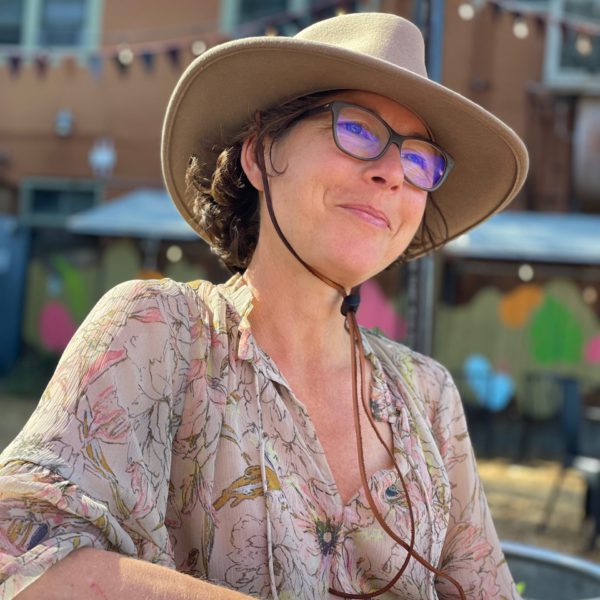
Pia Dögl, originally from Germany, lives with her husband, her young daughter, two dogs & a cat in San Francisco.
As a certified parenting coach, hypnotherapist, author, and entrepreneur, she has focused her life’s work on fostering the precious potential of children from their infancy on. Pia founded Beginning Well, an organization that supports parents and cargivers to transform overwhelm into calm, self-doubt into confidence and loneliness into deep connection.
Her book, Beginning Well – Empathy From The Very Beginning, available from WECAN and Amazon, was published in autumn 2018 in English and will soon be available in Chinese & Japanese.
Pia works internationally with parents, caregivers, health professionals, schools, and other organizations on growing self-awareness, self-care, and peaceful cooperation.
If you have any questions or inquiries about online courses, group or 1:1 coaching, please contact as at info@beginningwell.com.
More from this Author/Topic/Category
We don’t have to be perfect
Our goal is to become self-aware. A personal account by Parenting Coach & author, Pia Dögl Honestly speaking … When I was raising ...
The fastest way to get back to yourself
Discover the power of your breathing. In this simple yet deep breathing practice Pia invites you to become more present, to find out ...
The stress-free way to create daily care routines
About successful cooperation & rewarding Me-Time. So many parents experience resistance, power struggles, and exhaustion from all the daily care routines, such as changing diapers, ...

